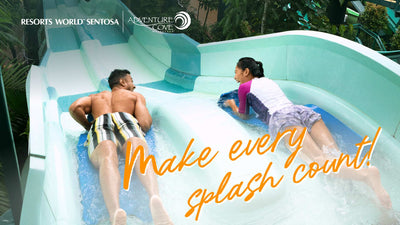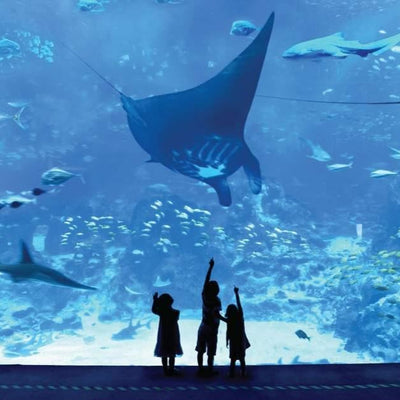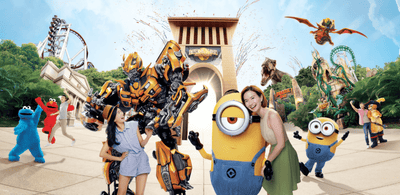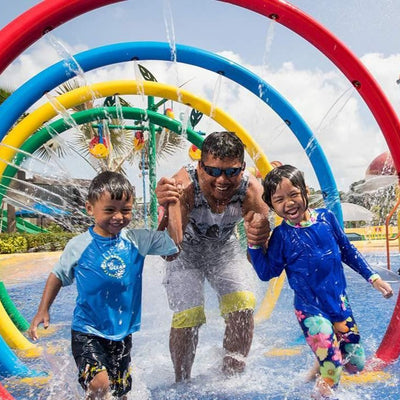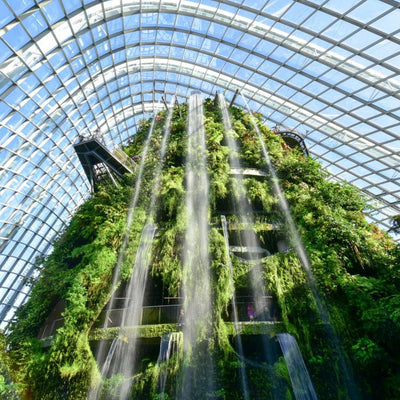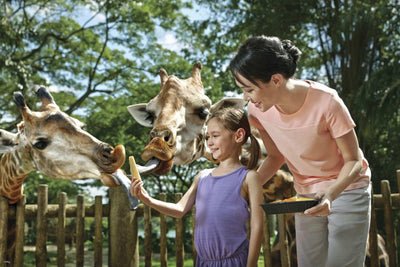The Science Centre Singapore is a great place for the young and young at heart to engage with Science, Technology, Engineering and Mathematics (STEM), but do you know the people behind the wonderful exhibitions and programmes?
From exhibitions like Earth Alive to Know Your Poo, and activities for calendar moments like Earth Day and International Women’s Day, a team of dedicated Science Educators work behind the scenes to bring holistic experiences to life for families visiting the Centre.
Meet Rima
Rima Melissa is a Gallery Experience Science Educator at Science Centre Singapore, and her portfolio sees her looking after the Centre’s commemoration of various salient international days. These include Earth Day, International Day against Drug Abuse and Illicit Trafficking, and International Science Centre and Science Museum Day, among others.
*Check out this list of events happening this June at Science Centre Singapore!
Rima took time off her busy schedule to share how she got into this unique field and what her job entails. In case you’re wondering, no, she doesn't make things go "KABOOM" in a science lab!

Tell us about your role at Science Centre Singapore. What is a typical day for you?
My role as a Gallery Experience Science Educator is to manage our guests’ experiences at the Centre, which includes looking after both the education and entertainment aspects of their visits. I specifically work on shows and themed gallery programmes like tours, where I’m also in charge of formulating explanations for the exhibits at interactive stations. This comes hand-in-hand with ensuring that we are constantly working on ideas that are engaging and easily understood, while still conveying the relevant STEM concepts accurately.
Science Educators are both curators as well as facilitators, and we are responsible for projects from start to end. On normal operational days, currently Fridays to Sundays due to the pandemic, I am stationed at the galleries where I interact with guests, and I also prepare for and host shows twice a day. On non-operational days, I focus on the development of programmes, and my time here is spent brainstorming and thinking of how to bring to life programmes in the pipeline.

How did you become a science educator?
I was first introduced to science education when I was doing my Bachelor of Science in Physics at the National University of Singapore. In school, I excelled in science and grew very passionate about presenting science concepts, as I found that I have a knack in explaining complex concepts in layman terms. I felt that science concepts could be much less alienating and daunting if presented in a relatable manner.
My passion solidified when I was introduced to a Science Communication and New Media module that explored ways of communicating science to society. Knowing that I could specialise in this field, I immediately applied to enroll in a Master of Science Communication course. Throughout the pursuit of my course, I learned that I really enjoyed working on ideas to better communicate science and technology in original and effective ways. I also realised science communication was what I wanted to pursue, so I took a chance to take up a career as a Science Educator with Science Centre Singapore. Fast forward two and a half years armed with my Master’s degree and here I am, still loving my first and only job!
Tell us more about being a Science Educator
It is a unique job - there are not many places where you get to host science shows, try to convey scientific concepts and make an audience laugh at the same time.
The main challenge of being an educator is catering to a diverse audience. Within the first few interactions, you have to judge if the person understands what you’re saying and whether they are interested in the story you’re telling. We look for signs of how well we’re engaging our guests throughout the course of the show and do our best to tailor our communication accordingly. When I get rewarded with reactions like “ooooooh” or “wow” from the guests, that’s when I know that I have done my job well
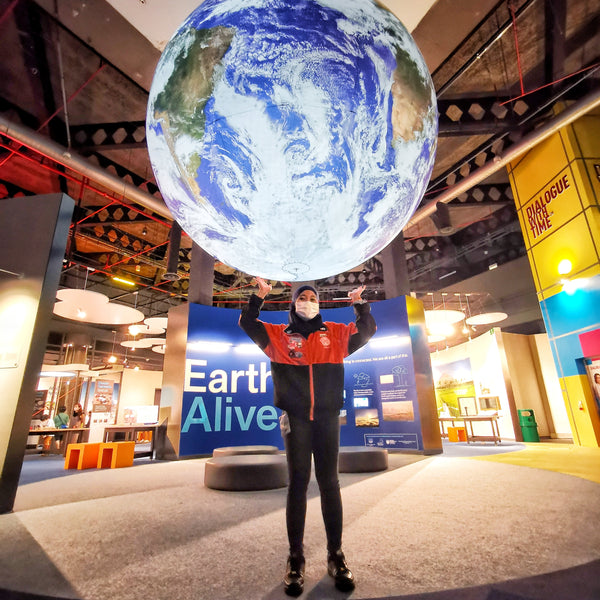
A key part of your role includes planning programmes for guests. What events are you responsible for at present and what went into the programme development?
The main part of my scope involves planning activities that are anchored around international days that relate to STEM disciplines.
This effort started in 2019 and seeks to serve two key objectives: First, to ensure that we are constantly engaging guests with new and timely activities throughout the year beyond our exhibitions, and second, to help young learners understand and experience the connection between STEM and their everyday lives.
For example, the global theme for this year's Earth Day was Restore our Earth. To tie in with the theme, each activity was designed to educate guests about how they can play a part in restoring our Earth by adopting a more sustainable lifestyle. We tried something different this year too - we launched a sustainability themed photo journey where guests could look for related exhibits based on a guide and capture pictures in the process. The trail was entirely digital and generated zero waste!
So you see, planning for the commemoration of international days goes beyond just coming up with ideas. We work on each activity to tell an engaging story that is consistent with our theme, and ensure that the “moral” of the story is clear to our audience.

Aside from Earth Day, what are some exhibitions or activities that you have enjoyed working on and why?
Back in 2019, we celebrated World Mental Health Day. It was a cause that was really special to me and I was really glad we managed to celebrate it. We had two activities - the first was a mass painting where we invited our guests to join us in painting a small part of a giant artwork. This was aimed at encouraging guests to take a step back and slow down to focus on this one task, which benefits our mental health.
The other activity was called “Fishing for Thoughts”. We attached some “thoughts'' on magnetic fishes, and when guests fished it out with their rods, they had to decide if it was a positive or negative thought. This helped spark good conversations between parents and children, as parents reminded their kids that although they may sometimes have negative thoughts, it’s not necessarily reflective of who they are. Even though the event was small and the activities were simple, they were impactful.
Being a family attraction, what are the considerations when planning these exhibits and activities to make them family and kids friendly?
At the Science Centre, we interact with guests across different demographics and from all walks of life, hence our goal as Science Educators is to ensure that we communicate STEM concepts in a way that appeals to all. While scientific concepts appear intimidating, our job is to look for ways to break down the complexities and to demonstrate how Science is present everywhere. We want to make the exhibitions and activities suitable for younger learners, but we don’t want to "water it down" so much that parents and adults might think it’s “too boring”. It’s all about finding that balance!
What drives you to create exhibitions and activities? What do you hope the visitors get from visiting them?
Our natural tendency is to associate science with theories, labs and classrooms. But this understanding limits our ability to experience science, because the truth is, science can be encountered everywhere, every day and in unexpected places.
At the Centre, we actively seek to help learners experience this reality for themselves. All our exhibitions and activities serve to encourage our guests to stay curious, ask questions and keep discovering the wonders of science.
We always strive to come up with novel ways for our guests to learn a specific science concept and hopefully instill an interest in science. In fact, you don’t have to be good at science to enjoy science!

What are some of your favourite experiences from working at the Centre?
If I had to choose one out of the many great experiences thus far with guests and colleagues, I’d choose the kindness that guests have shown.
The school holidays are especially tiring for Science Educators, as we are constantly delivering programmes for the entire holiday period. I remember a specific occasion where I was feeling quite exhausted after a show, but almost every adult in the crowd told my colleague and I that they really enjoyed our show and that it was really good. Right away, my fatigue vanished and l was instantly reminded why I enjoy doing this job.
If you could speak to our readers directly, why would you encourage them to visit the Science Centre Singapore?
Our programmes and exhibitions at Science Centre Singapore are story-tellers in disguise, weaving tales of science and art and technology and our intricate relationship with them. There is always a story to be unraveled and something to be learned at Science Centre Singapore regardless of who you are or where you come from, and visits also serve as a great opportunity for inter-generational bonding!
What are you looking to in the next phase of your career at the Centre?
I’m hoping to explore different modes of activities; how we can inject more creativity in what we do to ensure we still fulfil our mission to educate our guests.

Any words of advice to aspiring science educators?
The field of STEM tends to be a male-dominated industry, but this has never been a concern for me. I am highly focused on what I am interested in and what I know I can do well. A strong passion is important, and this holds true for any field of work. If you think you’re good at it and you’re passionate about it, give it a go. Even if you don’t succeed, you can at least say “hey at least I tried!”, and knowing that you tried is way better than not trying at all.
This interview has been edited and condensed.








